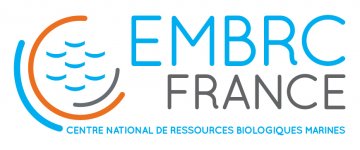Translation and cell cycle at the egg-to-embryo transition in sea urchin
mRNA translation is a key step in the regulation of gene expression, allowing rapid and precise adjustment of the cell to physiological and pathological variations. We are interested in the molecular and cellular mechanisms that link translational control to cell cycle regulation and early embryonic development of sea urchins.
The early development of sea urchin embryos is an interesting and relevant model for the study of translational control. Fertilization triggers a rapid increase in protein synthesis, necessary for the first mitotic division of the embryo. This increase in protein synthesis activity is independent of any new transcription and relies on maternal mRNA recruitment. Gametes are easy to obtain in large quantities, allowing for molecular, biochemical and cellular approaches.
We have identified several translation initiation and elongation factors (eIF4E, 4E-BP, eIF2, eEF2) activated and involved in the protein synthesis increaser at fertilization. We demonstrated the important role of the availability of eIF4E factor and the mTOR pathway in the translation of cyclin B, a key regulator of cell cycle progression. By a polysome profiling approach developed in the team, we showed that only a small subset of maternal mRNAs are translated after fertilization, targeting proteins involved in regulatory pathways such as cell cycle regulation or lysosome biogenesis. We develop functional approaches that allow us to study the regulation and impact of specific mRNA translation on mitotic cell cycles and early embryonic cellular processes in sea urchins.
PIs : Julia Morales (DR CNRS, morales@sb-roscoff.fr); Patrick Cormier (PR SU, cormier@sb-roscoff.fr); Fernando Roch (CR CNRS, roch@sb-roscoff.fr)
People involved : Sandrine Boulben, IE CNRS; Sonia Dufour, PhD Sorbonne Université SU; Anne-Catherine Dock-Bregeon – DR CNRS Emérite
Former members : Florian Pontheaux (PhD SU 2018-2022); Harold Moundoyi (PhD SU/Region Bretagne 2015-2020); Héloïse Chassé (PhD SU/Région Bretagne 2012-2015); Omid Feizbakhsh (ATER SU 2018-2019); François Sement (Post-Doc SAD Région Bretagne 2018-2019); Odile Mulner-Lorillon (DR CNRS, retired); Robert Bellé (PR SU Emeritus)
Publications :
- Pontheaux, F., Boulben, S., Chassé, H., Boutet, A., Roch, F., Morales, J. and Cormier, P (2022). eIF4B mRNA Translation Contributes to Cleavage Dynamics in Early Sea Urchin Embryos. Biology 11(10): 1408. DOI: 10.3390/biology11101408.
- Pontheaux F, Roch F, Morales J, Cormier P (2021) Echinoderms: Focus on the sea urchin model in cellular and developmental biology. In: Boutet, A. and Schierwater B., eds. Handbook of Established and Emerging Marine Model Organisms in Experimental Biology, CRC Press. https://doi.org/10.1201/9781003217503
- Feizbakhsh, O., Pontheaux, F., Glippa, V., Morales, J., Ruchaud, S., Cormier, P. and Roch, F (2020). A Peak of H3T3 Phosphorylation Occurs in Synchrony with Mitosis in Sea Urchin Early Embryos. Cells 9(4): 898. DOI: 10.3390/cells9040898.
- Chassé, H., Boulben, S., Cormier, P. and Morales, J (2019). Translational Control of Canonical and Non-Canonical Translation Initiation Factors at the Sea Urchin Egg to Embryo Transition. International Journal of Molecular Sciences 20(3): 626. DOI: 10.3390/ijms20030626.
- Chassé, H., Aubert, J., Boulben, S., Le Corguillé, G., Corre, E., Cormier, P. and Morales, J (2018). Translatome analysis at the egg-to-embryo transition in sea urchin. Nucleic Acids Research 46(9): 4607-4621. DOI: 10.1093/nar/gky258.
- Chassé, H., Boulben, S., Costache, V., Cormier, P. and Morales, J (2017). Analysis of translation using polysome profiling. Nucleic Acids Research: gkw907. DOI: 10.1093/nar/gkw907.







